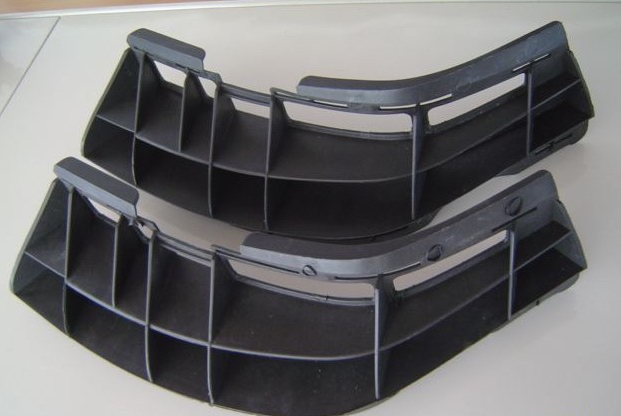模具的制造加工過程不是一個步驟就能完成的,其中切削過程的進行關系到模具制造的質量案如何,而這個過程中還會采用很多方式方法,比如說洗銑方式。那么模具制造時如何選擇采用順銑還是逆銑呢?
Mold manufacturing process is not a step can be completed, the cutting process is related to the quality of mold manufacturing case, and this process will also use a lot of methods, such as washing and milling. So how to choose the use of down milling or reverse milling mold manufacturing?
模具加工的切削過程少應分為粗加工、半精加工和精加工三個工序,在精加工過程中,將適用于圓刃銑刀和球頭銑刀,圓刀片銑刀、球頭立銑刀和直立銑刀都將應用余量銑削工藝,在每一道工序中,為下一道工序留出盡可能多的均勻分布的余量是非常重要的。通過選擇槽形、特殊刀具尺寸和切削參數、組合和合適的銑削策略來優化切削工藝非常重要。
Mould processing cutting process should be divided into rough machining, semi-finishing and finish machining at least three working procedure, in the process of finishing, will apply to round head milling cutter, milling cutter and the ball round blade cutter, ball end mill and upright milling cutter will be allowance for the milling process, application in every working procedure, for the next procedure, set aside as much as possible the uniform distribution of allowance is very important. It is important to optimize the cutting process by selecting groove shapes, special tool sizes and cutting parameters, brand combinations, and appropriate milling strategies.
那么模具加工中應該順銑還是順銑呢?
山東模具制造廠家給出的答案是使用順銑。切削刃剛切削時,順銑時切屑厚度可達到很大值,順銑時切屑厚度很低。一般而言,逆銑的刀具壽命比順銑的短,因為發熱量明顯高于順銑,順銑隨著切屑厚度從零增加到很大值,產生的熱量也更多,因為切削刃上的摩擦力比銑削時強,而逆銑時徑向力也明顯較高,對主軸軸承產生不利影響。
So die processing should be along milling or along milling? Shandong die manufacturers give the answer is to use down milling. When the cutting edge is just cut, the chip thickness can reach a great value in down milling, while the chip thickness is very low in down milling. In general, the tool life of reverse milling is shorter than that of reverse milling, because the caloric value is significantly higher than that of reverse milling. With the increase of chip thickness from zero to a large value, the heat generated is also more, because the friction force on the cutting edge is stronger than that of milling, and the radial force of reverse milling is also significantly higher, which adversely affects the spindle bearing.

在順銑中,切削刃主要承受壓應力,這比逆銑中產生的拉力對硬質合金刀片或整體硬質合金刀具有更有利的影響。當然也有例外,當使用整體硬質合金立銑刀進行側銑時,尤其是在硬化材料中,反向銑削是,這使得以較小的公差和較好的90度角更容易獲得壁直度。
In down milling, the cutting edge is mainly subjected to compressive stress, which has a more favorable effect on carbide blades or monolithic carbide knives than the tension generated in down milling. There are exceptions, of course, when a solid carbide end mill is used for side milling, especially in hardened materials, where reverse milling is preferred, which makes it easier to obtain wall straightness with smaller tolerances and a better 90 degree Angle.
如果不同軸向進給之間有任何錯位,刀具連接標記也非常小,這主要是由于切削力的方向,如果在切割中使用非常鋒利的刀刃,切割力會將刀“拉”向材料,可以反銑的另一個例子是用舊的手動銑床銑削,舊銑床的螺桿間隙大,反向銑削產生切削力間隙,使銑削動作更加穩定。
If you don't have any mismatch between axial feed, cutting tool connection mark also is very small, this is mainly due to the direction of the cutting force, if using a very sharp blade in cutting, the cutting force will knife "pull" to the material, can be another example of the milling is to use the old manual milling machine milling, milling machine screw clearance is big, old reverse milling cutting force eliminate clearance, Make the milling operation more stable.
模具制造時如何選擇采用順銑還是逆銑?相信大家通過以上的內容就了解大概了,具體的問題您可以點擊我們網站
m.33hf8g9.cn聯系我們,知道更多的詳情,進而更好的使用模具或者進行模具的制造加工。
How to choose down milling or back milling when mold manufacturing? I believe that you can understand the above content, specific problems you can click on our website m.33hf8g9.cn to contact us, know more details, and then better use of mold or mold manufacturing processing.
